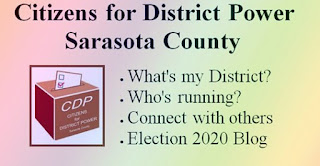This was posted to the Sarasota Voices list. It might help structure some discussion of Charter School education in Sarasota as the School Board elections proceed.
Given the mixed bag of charter school 'partnerships' clamoring for our tax money and fighting regulation at every level, these Federal Guidelines might serve to guide our local representatives in raising the bar for every such 'partnership' where the funding comes from taxpayers and the profits accrue to the investor classes.
This week the US Department of Education released much-anticipated updates to rules for the Expanding Opportunity Through Quality Charter School Programs (CSP) – the Grants to State Entities and the Grants to Charter School Developers for the Opening of New Charter Schools and for the Replication and Expansion of High-Quality Charter Schools programs.
This is the first update to the rules since 1994 and will apply to grant applicants for this year and subsequent years. Proposed rules were released in April followed by a comment period. A total of 26,580 comments were received of which 5,770 were unique. Most were duplicates from letter-writing campaigns. According to the department, “the majority [of comments] expressed general support for the regulations and the priorities.”
The first section of the new rules lists the main points raised in the public comments and what (if any) change was made in the rules in response.
According to the department, the rules affirm its commitment to assuring access to high-quality education for all students by:
- “Ensuring that all students – with a focus on underserved students – have access to a high-quality public education, whether in a charter school, a magnet school, a community school, or other type of public school.
- Supporting high-quality charter schools and fulfilling our responsibility to be good stewards of federal funds. This means ensuring that recipients of taxpayer dollars across all Department discretionary and formula grant programs – including these programs – are subject to strong fiscal transparency, oversight, and accountability.
- Recognizing the important role the federal government can play in supporting state and local efforts to increase student diversity across and within our nation’s public school system. We are at our strongest as a nation when we embrace the rich diversity across our country. Federal resources should not be used to increase racial or socioeconomic segregation and isolation.”
These goals are accomplished through several key provisions of the rules.
Limitations on applications from for-profit entities and more transparency requirements.
- Applicants must ensure that the for-profit management company “does not exercise full or substantial control over the charter school.” This requirement bars charter schools operated by for-profit companies from obtaining CSP funds. There are numerous such charter schools in NC.
- Applicants who plan to contract with a for-profit management company must provide extensive information about the contract, leadership personnel, real estate, etc. and the charter school must not share legal, accounting, or auditing services with the for-profit.
Greater transparency and accountability for charter schools, state entities, and charter management operators that apply for grants.
- Charter school grantees must hold a public hearing on proposed or expanded charter school plans. The schools are obligated to reach out to the community to encourage and provide a summary as part of the obligation.
- Information about potential costs for prospective parents must be clearly published including fees, uniform requirements, disciplinary practices, transportation plans, and whether the school participates in the national free/reduced-price lunch program.
- Schools must publish for-profit management contracts, names of awardee schools and their peer-reviewed applications as well as descriptions of the review process. (NC already publishes grant proposals)
- There are new restrictions on schools spending implementation funds for planning year activities prior to the charter school being approved and securing a facility.
Submission of a needs analysis that includes
- Evidence of community desire for the school.
- Documentation of the school’s enrollment projections and how they were determined.
- A demographic analysis of the district and the proposed school.
- The projected impact on racial and socioeconomic diversity with assurances that the school will not increase racial segregation and isolation in the local school district from which the charter school would draw its students.
- Assurance and steps taken to ensure that the school will not negatively affect district desegregation efforts.
These new rules for future CSP grantees are common-sense ways to assure the public that taxpayer dollars are being spent to benefit our students' education and not to enrich operators or increase segregation.
For example, since 2001, 930 CSP-funded charter schools and proposed charter schools (approximately 14.5 percent) either never opened or closed prior to the end of the grant period.
These charter school closures and failures to open cost more than $174 million in federal resources provided through CSP.
The new rules that require more advance planning, evidence of need, and limits on spending without authorization all bolster the likelihood of a charter's ultimate success.
These new rules are an important first step in making sure that taxpayer dollars are not spent on schools that
- never open or
- open and close quickly,
- foster segregation, or
- simply line the pockets of for-profit operators.
Increased transparency will shine a light on the positive and negative aspects of the charter school programs and will hopefully lead to more improvements in the future.





